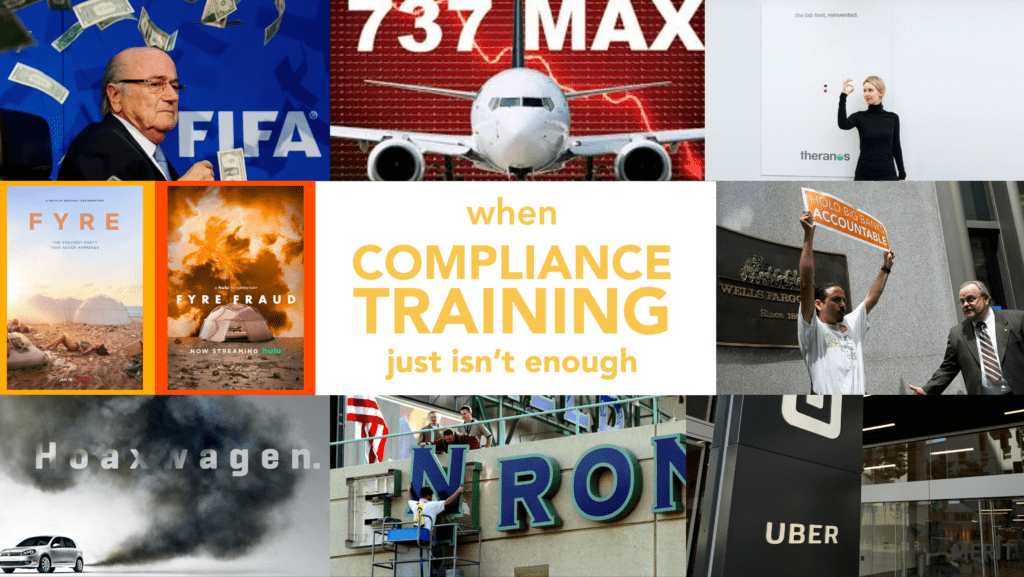
Most organizations facing ethics scandals have an annual compliance training program
Bad behavior is on the rise and the costs are mounting
With ethics scandals becoming more and more common, the costs are skyrocketing. VW paid a $2.8 billion criminal fine and $1.5 billion in civil penalties on top of a $15.3 billion settlement with U.S. regulators. Wells Fargo was fined a combined total $185 million, CEO John Stumpf resigned, and nearly 5,300 employees were fired. And neither of those examples include loss in sales and brand value.
And beyond that, what about the opportunity cost of not doing the right thing? What gains could be made when everyone in your organization is trained to handle critical decisions with a focus on doing more than the bare minimum or finding a way around the rules?

Ethics scandals are more frequent and trust by employees, customers and the public are on the decline.
The Edelman Trust Barometer, 2021
In a 2015 survey, 30% of compliance professionals in the United States do not measure the effectiveness of their compliance programs.
Deloitte. In Focus: 2015 Compliance Trends Survey
Learning the Do’s and Don’ts isn’t enough to help people avoid making poor decisions
Learning the rules seems simple enough, but most ethical scandals involve a lot more complexity. Things like culture, incentive structures, transparency, and the simple fact that values and rules can often be in conflict with each other can make situations much harder to navigate.
Employees face real-world dilemmas like what if you make a promise and conditions change making it impossible, or what to do when you have an unfair advantage and the wrong decision is technically within the rules.
Ethics skills prepare people to make the right decisions in those critical moments
The military has known for decades that the best way to improve outcomes in the field is skills training. When a soldier jumps from a plane, they don’t just hope their parachute opens, they immediately run down a checklist in their head and are prepared for every phase of the journey to the ground.
In your organization, when someone is put in a situation they don’t expect, are they prepared to navigate it? Do you hope they remember the rules, or do they have a checklist that gives them power and perspective?
Good people make poor decisions all the time. Ethics skills help people make the right decision in critical moments.
Only 12% of organizations have an advanced compliance and ethics training program. Nearly 40% of organizations rate their programs as basic or reactive.
Freedeen, I. 2016 Ethics and Compliance Training Benchmark Report
